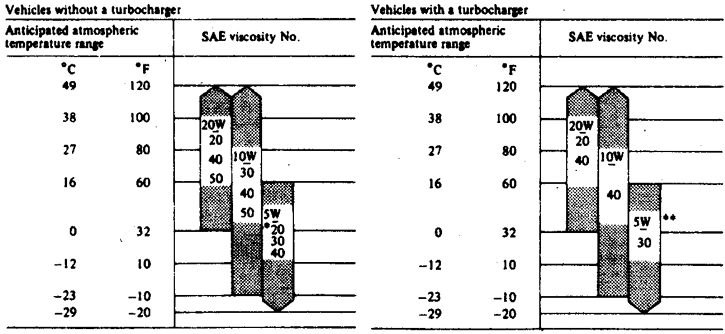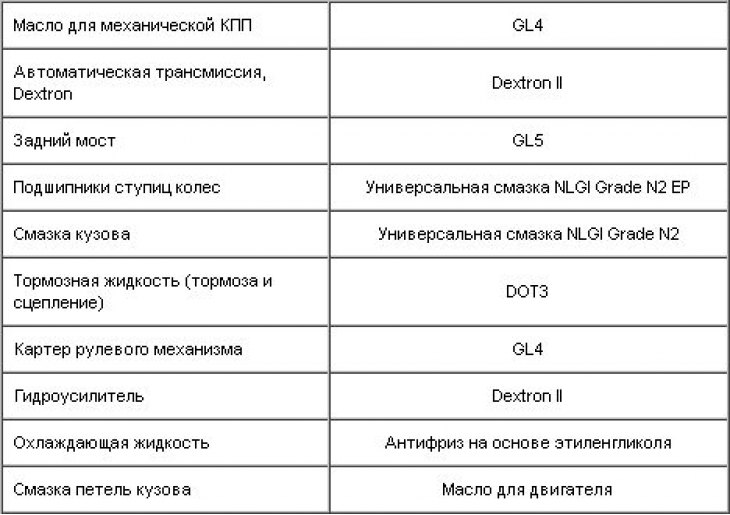Fuel
Gasoline engines
Refueling is allowed only with unleaded gasoline with an octane rating of at least 87 (research method). If there are knocks (detonation) or erratic engine operation ("failures") fill up with higher octane gasoline. If this measure fails, then check and adjust the idle speed and ignition timing. If abnormal engine operation is still felt, then the cause is a malfunction or wear of the engine. Driving with engine failures is not allowed, as it leads to increased wear of the toothed belt or chain.
The manufacturer strongly discourages the use of various fuel additives for cleaning combustion chambers, etc. Very rare use of additives for cleaning fuel lines and tanks from tar deposits is allowed. It is recommended to use a mixture of 90% unleaded gasoline with 10% ethanol (gasol). If abnormal operation of the engine is felt, then you should immediately switch to standard high-octane grades of gasoline. Be aware that some fuels already contain the necessary additives. It is forbidden to refuel with methanol-based gasoline-alcohol mixtures, otherwise the fuel system will be damaged.
Diesel engines
It is allowed to refuel with fuel grades 1-D or 2-D, or winter grade 2-D. At low temperatures, 1-D or 2-D winter fuel is recommended. It is forbidden to add oil and various solvents to the fuel. If gasoline enters the diesel tank by mistake, remove the tank and rinse it, the engine must not be started.
Engine oil
Attention! It is forbidden to fill in oil without detergent additives, or undiluted mineral oil.
Temperature chart for the use of various engine oils

On the left is a diagram for a non-turbo engine.
On the right is a diagram for a turbocharged engine (diesels).
The manufacturer recommends all-weather grades of oil listed below.
For gasoline engines without turbocharging

* SAE 5W-20 oil is not recommended for high speed driving regardless of climatic conditions.
For diesels

* SAE 5W-30 is recommended for sustained low temperatures, but not recommended for high speed driving.
Recommended Lubricants and Fluids

